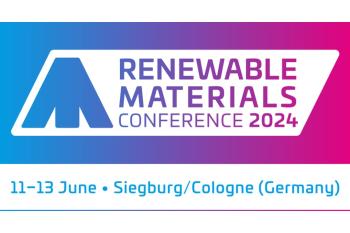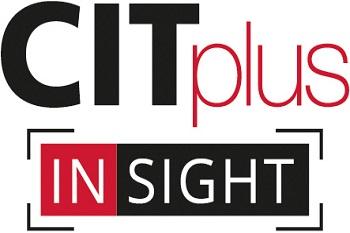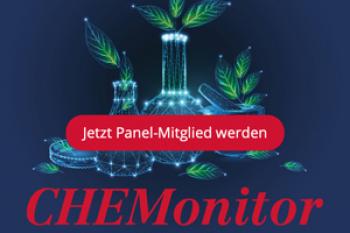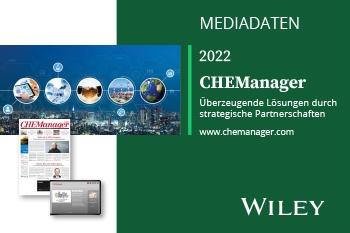Expert Interview: David Zimmermann, Kalexsyn
The Coronavirus Crisis: Challenges and Opportunities for CMOs, CDMOs and CROs
The ongoing pandemic is putting pharmaceutical R&D strategies to the test and also challenging manufacturing planning and supply chain management. Particularly in this industry segment, the supply chain is global, complex and interconnected. Each link must be strong enough to ensure that the road from lab to final drug product is as smooth as possible, even under the most difficult circumstances.
In addition to the pandemic, the growing threat of a no-deal-Brexit amid old and new trade conflicts and increasing protectionism, is putting even more stress on companies operating in the pharma sector.
In cooperation with Wombat Capital, a cross-border investment bank, CHEManager asked executives and experts of CMOs, CDMOs and CROs operating in the pharmaceutical sector to share their opinion on current challenges for their industry and how these challenges may influence changes in their market.
What in your opinion and from your perspective are the main impacts of the coronavirus pandemic on the drug supply chains?
David Zimmermann: The last few months have shown that pharma and biotech companies are becoming more risk conscious. They are moving to European and US suppliers that they feel provide a more stable work product from both a low turn-over labor base and high quality of material.
Many Western CDMOs have already shifted operations back to the USA and Europe as intensive business activity in China has driven up labor costs. In addition, national policies, trade-related developments such as Brexit and the US-China dispute, and impacts of pandemics are likely to require repatriation of at least part of the supply chain in many countries. Could CMOs/CDMOs be beneficiaries of restructured supply chains?
D. Zimmermann: I think we are already seeing that in the industry. Certainly, the growth in our European and US business are a result of that emphasis.
What do you think the impact of the repatriation of the drug supply chain will have on the M&A activity in the CMO/CDMO industry? Do you think that this would create an impact on valuations?
D. Zimmermann: I would expect that repatriation will continue to fuel the M&A activity. Just as we see in the pharma models, large is typically followed by larger, large CDMOs will seek to gain business share through acquisition. Valuations for high quality CROs and CDMOs will definitely increase. However, finding those high-quality prospects will become more and more challenging.
Has the inability to hold face-to-face meetings with prospective clients and conduct client visits to sites affected your new business development since the outbreak of the coronavirus pandemic?
D. Zimmermann: I don’t feel it has affected business generation. Business at Dipharma is extremely strong right now. The impact we have seen is in our need to provide creative solutions allowing clients means to audit and site visit. Interactive, live video has been the current solution to site visits and audits.
EU regulatory authorities and the FDA have issued guidance on conducting clinical trials during the Covid-19 outbreak. Have you as a CMO/CDMO been affected by these changes?
D. Zimmermann: No.
The race is on to develop treatments and vaccines against Covid-19, and so is the need to assure supply of these potential drugs and vaccines. Pharma companies are leveraging their internal manufacturing networks but also partnering with CMOs/CDMOs. What supply and manufacturing strategies/alliances are in play?
D. Zimmermann: You are seeing a greater emphasis on the finish/fill side of the industry. Catalent announced at the beginning of September a $50 million investment in their finish fill operations in Indiana. Depending on the need for refrigeration and special handling of vaccines one may see a growth opportunity in those sectors also.
The CMO/CDMO industry has managed to support efforts to develop vaccines and therapeutics for Covid-19 despite already being at a high level of utilization. What made that possible?
D. Zimmermann: I believe the drive and the muscle for this has come mainly from large pharma. Their ability to re-allocate large sums of money, people and re-prioritize have been the main drivers. The fact that they have been able to mobilize so quick has been surprising. However, we are talking about billions of dollars of potential profit even with providing preferential pricing.
“Emerging”, “virtual” and other small (bio)pharmaceutical companies are driving the discovery and development of new drugs but are mostly dependent on the availability of financing – which could become more restricted due to the economic downturn cause by the economic and epidemiologic disruptions to the global economy. As emerging biopharma companies are important customers of CMOs/CDMOs, how is this going to affect your business?
D. Zimmermann: If that occurs within our industry it will certainly be felt financially by CROs and CDMOs. Since the pandemic started you have witnessed a steady if not increasing amount of investing in small pharma and biotech companies including small molecule focused companies.
For the biopharma CMO/CDMO industry, the pandemic crisis has created great opportunities. What is your opinion on whether and to what degree the CDMO industry will enjoy long-term benefits from its role in tackling the current crisis?
D. Zimmermann: Some of the longevity may hinge on the presidential election in November. Certainly Mr. Trump has shown an eagerness to increase domestic production of drugs. I do believe that the public appetite for “made at home” will continue regardless of the election.
I am also not optimistic about a quick fix/vaccine to Covid-19. We are at the start of flu season and we are putting children back in school which has shown to lead to outbreaks of Covid-19 in the US. I don’t believe we know much about flu variations for this coming season and how effective current vaccines will be at control. We are rushing for a Covid-19 “cure”. Historically we have often witnessed scientific short-cuts leading to a higher degree of failure when the data is scrutinized.
Dipharma recently completed the construction of its first GMP suite at Kalexsyn, its US facility. How has this benefited your relationship with customers?
D. Zimmermann: I have enjoyed the opportunity to share our new GMP capabilities to our customer base and to broaden their knowledge of our deep expertise in small molecule chemistry at our facilities in Italy. Over the last twelve months or so this has led to an increase in opportunities and ultimately expanded business from existing customers and even business from new customers for our sites in Italy and in Kalamazoo.
This interview was conducted in cooperation with Wombat Capital, a cross-border investment bank providing mergers and acquisitions and strategic advisory services. With offices in New York and Paris, Wombat Capital focuses on the CDMO/CRO and pharma outsourcing sectors.












